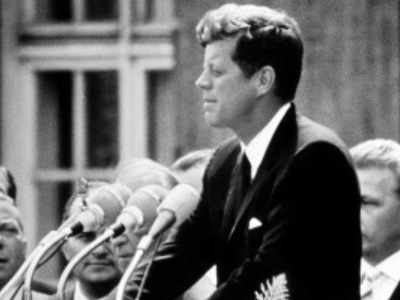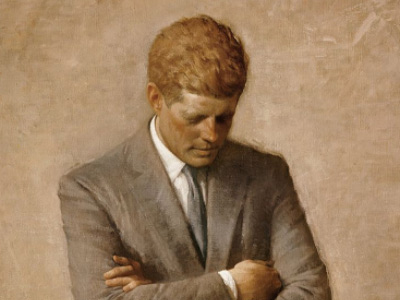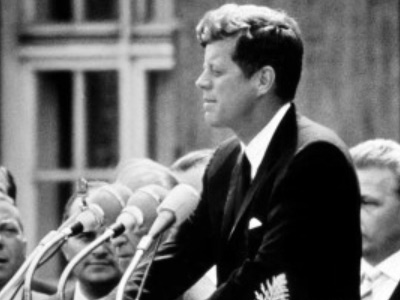Early Life and Education
John Fitzgerald Kennedy was born on May 29, 1917, at 83 Beals Street in the Boston suburb of Brookline, Massachusetts, to Joseph P. Kennedy Sr., a businessman and politician, and Rose Kennedy (née Fitzgerald), a philanthropist and socialite. His paternal grandfather, P. J. Kennedy, was a Massachusetts state senator. Kennedy's maternal grandfather and namesake, John F. Fitzgerald, served as a U.S. Congressman and was elected to two terms as Mayor of Boston. All four of his grandparents were children of Irish immigrants. Kennedy had an elder brother, Joseph Jr., and seven younger siblings: Rosemary, Kathleen ("Kick"), Eunice, Patricia, Robert ("Bobby"), Jean, and Edward ("Ted").
Kennedy lived in Brookline for the first ten years of his life and attended the local St. Aidan's Church, where he was baptized on June 19, 1917. He was educated at the Edward Devotion School in Brookline, the Noble and Greenough Lower School in Dedham, Massachusetts, and the Dexter School (also in Brookline) through the 4th grade. His father's business had kept him away from the family for long stretches of time, and his ventures were concentrated on Wall Street and Hollywood. In September 1927, the family moved from Brookline to the Riverdale neighborhood of New York City. Young John attended the lower campus of Riverdale Country School, a private school for boys, from 5th to 7th grade. Two years later, the family moved to suburban Bronxville, New York, where Kennedy was a member of Boy Scout Troop 2. The family spent summers and early autumns at their home in Hyannis Port, a village on Cape Cod, Massachusetts; Christmas and Easter holidays were at their winter retreat in Palm Beach, Florida. In September 1930, Kennedy, then 13 years old, attended the Canterbury School in New Milford, Connecticut, for 8th grade. In April 1931, he had an appendectomy, after which he withdrew from Canterbury and recuperated at home.
In September 1931, Kennedy started attending Choate, a prestigious boarding school in Wallingford, Connecticut, for 9th through 12th grade. His older brother Joe Jr. had already been at Choate for two years and was a football player and leading student. He spent his first years at Choate in his older brother's shadow and compensated with rebellious behavior that attracted a coterie. They carried out their most notorious stunt by exploding a toilet seat with a powerful firecracker. In the ensuing chapel assembly, the strict headmaster, George St. John, brandished the toilet seat and spoke of certain "muckers" who would "spit in our sea". The defiant Kennedy took the cue and named his group "The Muckers Club", which included roommate and lifelong friend Kirk LeMoyne "Lem" Billings.
During his years at Choate, Kennedy was beset by health problems that culminated with his emergency hospitalization in 1934 at Yale New Haven Hospital, where doctors suspected leukemia. In June 1934, he was admitted to the Mayo Clinic in Rochester, Minnesota; the ultimate diagnosis there was colitis. Kennedy graduated from Choate in June of the following year, finishing 64th in a class of 112 students. He had been the business manager of the school yearbook and was voted the "most likely to succeed".
In September 1935, Kennedy made his first trip abroad when he traveled to London with his parents and his sister Kathleen. He intended to study under Harold Laski at the London School of Economics (LSE), as his older brother had done. Ill-health forced his return to the United States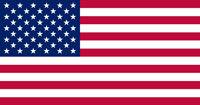 The United States of America (U.S.A. or USA), commonly known as the United States (U.S. or US) or America, is a country in North America. It is the world's third-largest country by both land and total area. The United States shares land borders with Canada to its north and with Mexico to its south. The national capital is Washington, D.C., and the most populous city and financial center is New York City. in October of that year, when he enrolled late and attended Princeton University but had to leave after two months due to a gastrointestinal illness. He was then hospitalized for observation at Peter Bent Brigham Hospital in Boston. He convalesced further at the family winter home in Palm Beach, then spent the spring of 1936 working as a ranch hand on the 40,000-acre Jay Six cattle ranch outside Benson, Arizona. It is reported that ranchman Jack Speiden worked both brothers "very hard".
The United States of America (U.S.A. or USA), commonly known as the United States (U.S. or US) or America, is a country in North America. It is the world's third-largest country by both land and total area. The United States shares land borders with Canada to its north and with Mexico to its south. The national capital is Washington, D.C., and the most populous city and financial center is New York City. in October of that year, when he enrolled late and attended Princeton University but had to leave after two months due to a gastrointestinal illness. He was then hospitalized for observation at Peter Bent Brigham Hospital in Boston. He convalesced further at the family winter home in Palm Beach, then spent the spring of 1936 working as a ranch hand on the 40,000-acre Jay Six cattle ranch outside Benson, Arizona. It is reported that ranchman Jack Speiden worked both brothers "very hard".
In September 1936, Kennedy enrolled at Harvard College, and his application essay stated: "The reasons that I have for wishing to go to Harvard are several. I feel that Harvard can give me a better background and a better liberal education than any other university. I have always wanted to go there, as I have felt that it is not just another college, but is a university with something definite to offer. Then too, I would like to go to the same college as my father. To be a 'Harvard man' is an enviable distinction, and one that I sincerely hope I shall attain." He produced that year's annual "Freshman Smoker", called by a reviewer "an elaborate entertainment, which included in its cast outstanding personalities of the radio, screen and sports world".
He tried out for the football, golf, and swimming teams and earned a spot on the varsity swimming team. Kennedy also sailed in the Star class and won the 1936 Nantucket Sound Star Championship. In July 1937, Kennedy sailed to France French Third Republic was the system of government adopted in France from 4 September 1870, when the Second French Empire collapsed during the Franco-Prussian War, until 10 July 1940, after the Fall of France during World War II led to the formation of the Vichy government. During the 19th and 20th centuries, the French colonial empire was the second largest colonial empire in the world only behind the British Empire. — taking his convertible — and spent ten weeks driving through Europe with Billings. In June 1938, Kennedy sailed overseas with his father and older brother to work at the American embassy in London, where his father was President Franklin D. Roosevelt's U.S. Ambassador to the Court of St. James's.
French Third Republic was the system of government adopted in France from 4 September 1870, when the Second French Empire collapsed during the Franco-Prussian War, until 10 July 1940, after the Fall of France during World War II led to the formation of the Vichy government. During the 19th and 20th centuries, the French colonial empire was the second largest colonial empire in the world only behind the British Empire. — taking his convertible — and spent ten weeks driving through Europe with Billings. In June 1938, Kennedy sailed overseas with his father and older brother to work at the American embassy in London, where his father was President Franklin D. Roosevelt's U.S. Ambassador to the Court of St. James's.
In 1939, Kennedy toured Europe, the Soviet Union Soviet Union, officially the Union of Soviet Socialist Republics (USSR), was a transcontinental country that spanned much of Eurasia from 1922 to 1991. The Soviet Union fall process began with growing unrest in the Union's various constituent national republics developing into an incessant political and legislative conflict between them and the central government. Estonia was the first Soviet republic to declare state sovereignty inside the Union., the Balkans, and the Middle East in preparation for his Harvard senior honors thesis. He then went to Czechoslovakia and Germany before returning to London on September 1, 1939, the day that Germany invaded Poland
Soviet Union, officially the Union of Soviet Socialist Republics (USSR), was a transcontinental country that spanned much of Eurasia from 1922 to 1991. The Soviet Union fall process began with growing unrest in the Union's various constituent national republics developing into an incessant political and legislative conflict between them and the central government. Estonia was the first Soviet republic to declare state sovereignty inside the Union., the Balkans, and the Middle East in preparation for his Harvard senior honors thesis. He then went to Czechoslovakia and Germany before returning to London on September 1, 1939, the day that Germany invaded Poland Poland, officially the Republic of Poland, and in historical context referred to as the Third Polish Republic, is a country in Central Europe. The Kingdom of Poland emerged in 1025 and in 1569 cemented its longstanding association with Lithuania, thus forming the Polish–Lithuanian Commonwealth. It was one of the largest great powers of Europe at the time, with a uniquely liberal political system that adopted Europe's first modern constitution in 1791. to mark the beginning of World War II
Poland, officially the Republic of Poland, and in historical context referred to as the Third Polish Republic, is a country in Central Europe. The Kingdom of Poland emerged in 1025 and in 1569 cemented its longstanding association with Lithuania, thus forming the Polish–Lithuanian Commonwealth. It was one of the largest great powers of Europe at the time, with a uniquely liberal political system that adopted Europe's first modern constitution in 1791. to mark the beginning of World War II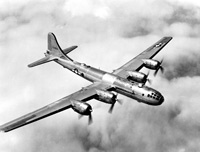 World War II or the Second World War, often abbreviated as WWII or WW2, was a world war that lasted from 1939 to 1945. It involved the vast majority of the world's countries—including all of the great powers—forming two opposing military alliances: the Allies and the Axis powers. World War II was a total war that directly involved more than 100 million personnel from more than 30 countries. World War II is generally considered to have begun on 1 September 1939, when Nazi Germany, under Adolf Hitler, invaded Poland. View World War II ». Two days later, the family was in the House of Commons for speeches endorsing the United Kingdom's declaration of war on Germany
World War II or the Second World War, often abbreviated as WWII or WW2, was a world war that lasted from 1939 to 1945. It involved the vast majority of the world's countries—including all of the great powers—forming two opposing military alliances: the Allies and the Axis powers. World War II was a total war that directly involved more than 100 million personnel from more than 30 countries. World War II is generally considered to have begun on 1 September 1939, when Nazi Germany, under Adolf Hitler, invaded Poland. View World War II ». Two days later, the family was in the House of Commons for speeches endorsing the United Kingdom's declaration of war on Germany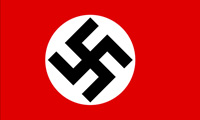 Nazi Germany (officially known as the German Reich from 1933 until 1943, and the Greater German Reich from 1943 to 1945) was the German state between 1933 and 1945, when Adolf Hitler and the Nazi Party controlled the country, transforming it into a dictatorship. Under Hitler's rule, Germany quickly became a totalitarian state where nearly all aspects of life were controlled by the government.. Kennedy was sent as his father's representative to help with arrangements for American survivors of the SS Athenia before flying back to the U.S. from Foynes, Ireland, to Port Washington, New York, on his first transatlantic flight.
Nazi Germany (officially known as the German Reich from 1933 until 1943, and the Greater German Reich from 1943 to 1945) was the German state between 1933 and 1945, when Adolf Hitler and the Nazi Party controlled the country, transforming it into a dictatorship. Under Hitler's rule, Germany quickly became a totalitarian state where nearly all aspects of life were controlled by the government.. Kennedy was sent as his father's representative to help with arrangements for American survivors of the SS Athenia before flying back to the U.S. from Foynes, Ireland, to Port Washington, New York, on his first transatlantic flight.
When Kennedy was an upperclassman at Harvard, he began to take his studies more seriously and developed an interest in political philosophy. He made the Dean's List in his junior year. In 1940 Kennedy completed his thesis, "Appeasement in Munich", about British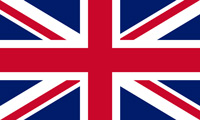 The British Empire, was composed of the dominions, colonies, protectorates, mandates, and other territories ruled or administered by the United Kingdom and its predecessor states. At its height it was the largest empire in history and, for over a century, was the foremost global power. By the start of the 20th century, Germany and the United States had begun to challenge Britain's economic lead. participation in the Munich Agreement. The thesis eventually became a bestseller under the title Why England Slept. In addition to addressing Britain's failure to strengthen its military in the lead-up to World War II, the book also called for an Anglo-American alliance against the rising totalitarian powers. Kennedy became increasingly supportive of U.S. intervention in World War II, and his father's isolationist beliefs resulted in the latter's dismissal as ambassador to the United Kingdom. This created a split between the Kennedy and Roosevelt families.
The British Empire, was composed of the dominions, colonies, protectorates, mandates, and other territories ruled or administered by the United Kingdom and its predecessor states. At its height it was the largest empire in history and, for over a century, was the foremost global power. By the start of the 20th century, Germany and the United States had begun to challenge Britain's economic lead. participation in the Munich Agreement. The thesis eventually became a bestseller under the title Why England Slept. In addition to addressing Britain's failure to strengthen its military in the lead-up to World War II, the book also called for an Anglo-American alliance against the rising totalitarian powers. Kennedy became increasingly supportive of U.S. intervention in World War II, and his father's isolationist beliefs resulted in the latter's dismissal as ambassador to the United Kingdom. This created a split between the Kennedy and Roosevelt families.
In 1940, Kennedy graduated cum laude from Harvard with a Bachelor of Arts in government, concentrating on international affairs. That fall, he enrolled at the Stanford Graduate School of Business and audited classes there. In early 1941, Kennedy left and helped his father write a memoir of his time as an American ambassador. He then traveled throughout South America; his itinerary included Colombia, Ecuador and Peru.
HISTORY
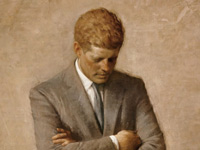
RESOURCES
This article uses material from the Wikipedia article "John Fitzgerald Kennedy", which is released under the Creative Commons Attribution-Share-Alike License 3.0.
© Stories Preschool. All Rights Reserved.
